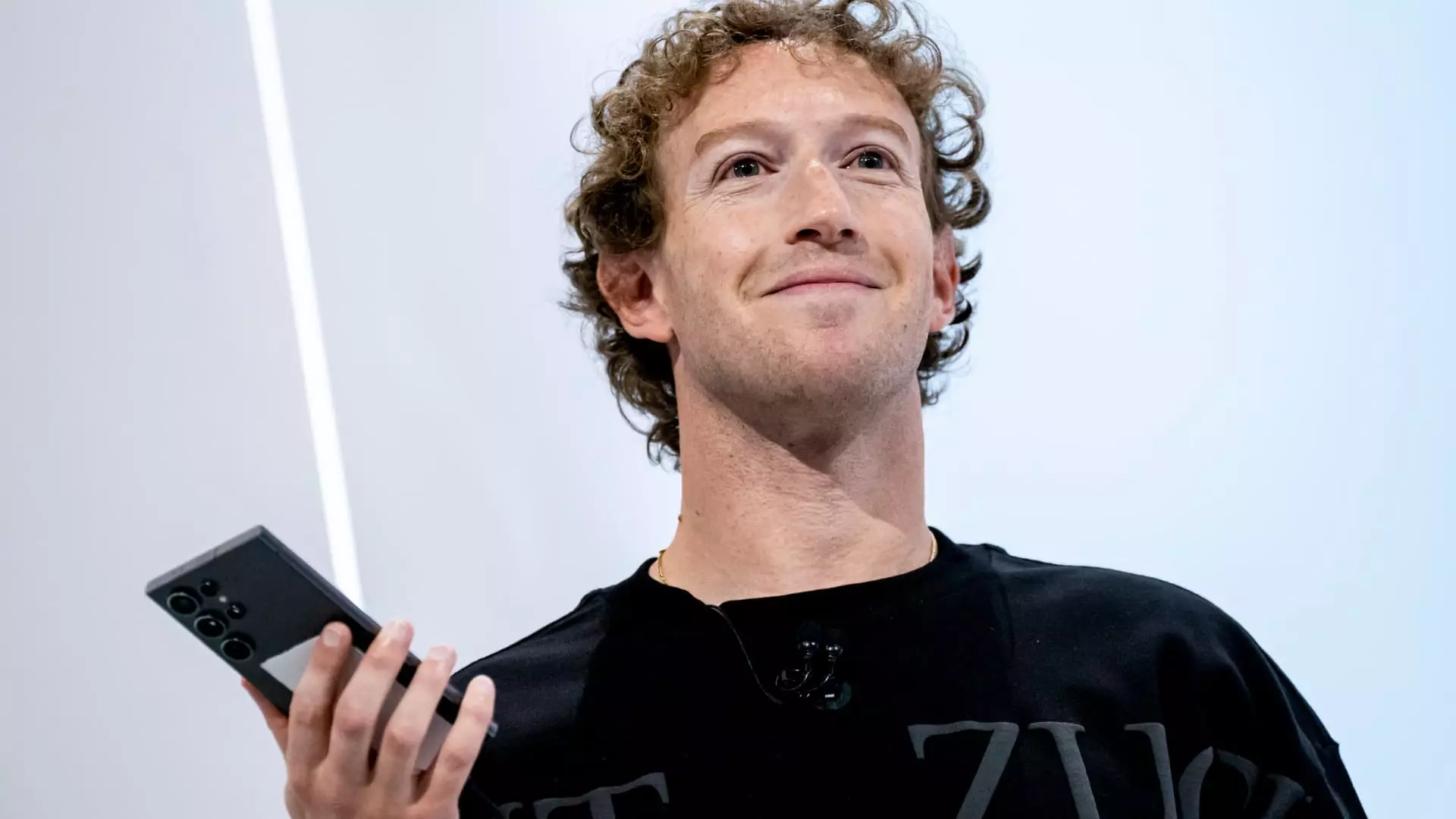In a recent appearance on the “Joe Rogan Experience,” Meta CEO Mark Zuckerberg launched a robust critique against Apple, particularly targeting the company’s innovation stagnation and its purportedly arbitrary business practices. This discourse arrives at a time when both companies are fiercely competing in the ever-evolving tech landscape. Zuckerberg’s comments sparked a conversation that highlights larger issues within the tech industry concerning innovation, competition, and the ethics of corporate practices.
Drawing on the transformative impact of the iPhone, Zuckerberg acknowledged its role in creating a universal mobile communications landscape. The smartphone’s introduction revolutionized personal technology, providing millions with unprecedented access to communication, information, and entertainment. However, he expressed concern that Apple’s innovation has plateaued since the initial launch. “Steve Jobs invented the iPhone, and now they’re just kind of sitting on it 20 years later,” he posited. This statement reflects a common narrative in tech discussions—that companies once at the forefront have frequently struggled to maintain momentum and a culture of progressive change.
Zuckerberg’s sentiments echo a growing sentiment among consumers and tech experts alike: the cycle of smartphone upgrades has significantly slowed, as seen in the diminishing enthusiasm surrounding new iPhone releases. This may indeed be a sign that consumers are not witnessing substantial advancements with each new model, rendering upgrades less compelling. The argument that Apple relies increasingly on its established user base rather than groundbreaking innovation raises questions about the sustainability of its business strategy.
An intriguing aspect of Zuckerberg’s critique centers on Apple’s economic model, particularly its notorious 30% “tax” on developers using its App Store. He asserts that by imposing such fees and creating obstacles for prospective competitors—particularly in areas like accessory manufacturing—Apple is effectively sidelining innovation from other companies. “It’s like squeezing people,” he lamented, suggesting that this business approach may prioritize revenue over fostering a diverse ecosystem of products and services.
In this model, Apple positions itself as both gatekeeper and profitor, leading Zuckerberg to question whether this is a long-term, sustainable strategy. By creating an environment where developers face substantial hurdles merely to create compatible products, Apple risks stifling innovation rather than sparking it.
A significant portion of the discourse revolved around Apple’s justifications for these policies, primarily rooted in user privacy and security. Zuckerberg challenged this narrative, arguing that Apple’s security protocols are flawed and that improved systems could allow for greater compatibility between innovative products. “It’s insecure because you didn’t build any security into it,” he claimed, suggesting that the onus is on Apple to fix its systems instead of using them as a shield against competition.
This line of reasoning invites a larger conversation about the responsibilities of tech giants in maintaining user security while fostering a competitive marketplace. If such practices lead to a suppression of innovation, stakeholders—including users and developers—may ultimately bear the brunt of stunted technological advancements.
Zuckerberg also critiqued Apple’s latest venture, the Vision Pro headset, alluding to its lack of success in the U.S. market. He highlighted the nuance of product development, acknowledging that initial launches often do not reflect a final vision of excellence. Zuckerberg expressed that while he doesn’t want to be overly critical of Apple’s attempts, the Vision Pro’s underwhelming performance raises questions about Apple’s capacity for innovation in burgeoning tech sectors like virtual and augmented reality.
Comparatively, Meta’s foray into virtual reality through the Meta Quest is seen as a more aggressive commitment to exploring uncharted territories of technology. Zuckerberg’s assessment of the tech landscape suggests a rift between the directions of the two companies, wherein Meta seems poised to embrace risk and innovation more readily than its rival.
The complexity of competition in the tech industry is starkly illuminated by Zuckerberg’s comments. The dichotomy between established players like Apple, with its historic influence and market power, and challengers like Meta, who are seeking to carve out their niches, creates a fascinating dynamic that will shape consumer technology for years to come. For consumers, the hope is that this rivalry ignites a new wave of innovation that prioritizes transformative advancements over monopolistic practices, choosing progress over complacency. As the industry evolves, the negotiations between maximizing profits and nurturing innovation will undoubtedly remain a crucial topic worthy of exploration.

